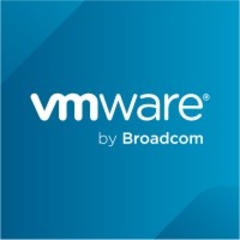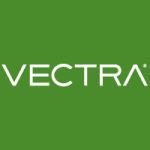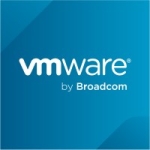What is our primary use case?
Our main use case is the distributed firewall. NSX can segment every application and server based on the ports they need to communicate externally. Ports that aren't required are inactive, so we activate them for some specific applications. We can get the ports from the application guys, activate the ones we need, and then disable the rest of the ports. We've done other things with NSX, but it's just mostly about the distributed firewall.
How has it helped my organization?
We typically run a lot of vulnerability assessments — sometimes spam testing — and get a lot of bad results because some ports are open. I think NSX has significantly cut down on that. Right now, we have been able to fix almost all of our problems with unnecessary ports being opened and related issues. We are secure in this specific aspect, so we can log other options.
What is most valuable?
NSX's stand-out function is the distributed firewall. The firewall system is just top-notch, and I haven't seen another solution like it. Aside from that, there are numerous other cases where NSX comes in handy. For example, we've done intrusion prevention and implemented some next-generation firewalls for service training. We deployed some next-generation firewalls inside certain servers. Then we could bring all the traffic down that was meant to lead each server to a specific firewall. The security guys put policies on the firewall for checking signatures and hash values to contain particular security breaches within the server and prevent them from affecting the network. So we could use the particular firewall that we usually use and use it within the server close-up at the data center instead of the VH.
What needs improvement?
NSX could better integrate with open-source products. Of course, it integrates with some, but I know many people are uncomfortable deploying NSX with certain open-source solutions, such as Radar. They don't integrate so well, and the integration is usually so complex that many people would rather not use them.
Buyer's Guide
VMware NSX
September 2025
Learn what your peers think about VMware NSX. Get advice and tips from experienced pros sharing their opinions. Updated: September 2025.
872,008 professionals have used our research since 2012.
For how long have I used the solution?
I've been using VMware NSX personally for one year now, but I'm a consultant on this product, so I've deployed it for multiple customers.
What do I think about the stability of the solution?
We've experienced some bugs with NSX's user interface. For example, sometimes we click something, and it's not clicking. But they put out a lot of updates and patches. Also, they've added some particular boards on the applications. So with every update, they make the user interface more stable.
What do I think about the scalability of the solution?
You can scale NSX if you have the resources, but it's usually expensive and complex to scale up.
How are customer service and support?
VMware support is great. I would rate their support eight out of 10.
How was the initial setup?
The NSX setup is complex. That's one area where they could improve. Generally, it's too complicated to deploy. You can spend two or three days on it. And if you've never done it before, it might take a week. So it takes a relatively long time and lacks comprehensive end-to-end documentation. We had inadequate documentation when we implemented it, but I think it's better now. Total deployment for us took more than two weeks, but there were some breaks in that time where we stopped working on it. We weren't under any deadline. If we were pressed, we could have finished in four or five.
After the initial setup, NSX doesn't require a whole lot of maintenance. It's mostly troubleshooting, checking error codes, etc. There is no dedicated maintenance personnel specifically for NSX. Some guys in the IT department support this solution along with several other solutions. We have about four to five people handling that side of things, but there are six of us in the whole department responsible for infrastructure.
What was our ROI?
It's hard to judge with new deployments because you need some time to start seeing a return. But after someone has had one or two years to achieve a mature deployment on the product, they'll generally be happy that they spent the money. After a year, I'm beginning to see the return on investment, but everyone would argue that it's still expensive for the first two or three months.
What's my experience with pricing, setup cost, and licensing?
What other advice do I have?
I rate VMware NSX seven out of 10. If you are considering NSX, I suggest that you practice the deployment and know your use case. Know what you want to do with it and understand why you want to use the product. Identify the security features you want to use and consider what it's doing for your infrastructure. We're still exploring the features. I'm not sure we're using all the features that come with the application. There are so many that we have not used. For now, we're looking at more use cases and expanding on that knowledge.
Which deployment model are you using for this solution?
Hybrid Cloud
If public cloud, private cloud, or hybrid cloud, which cloud provider do you use?
Amazon Web Services (AWS)
Disclosure: My company has a business relationship with this vendor other than being a customer.















